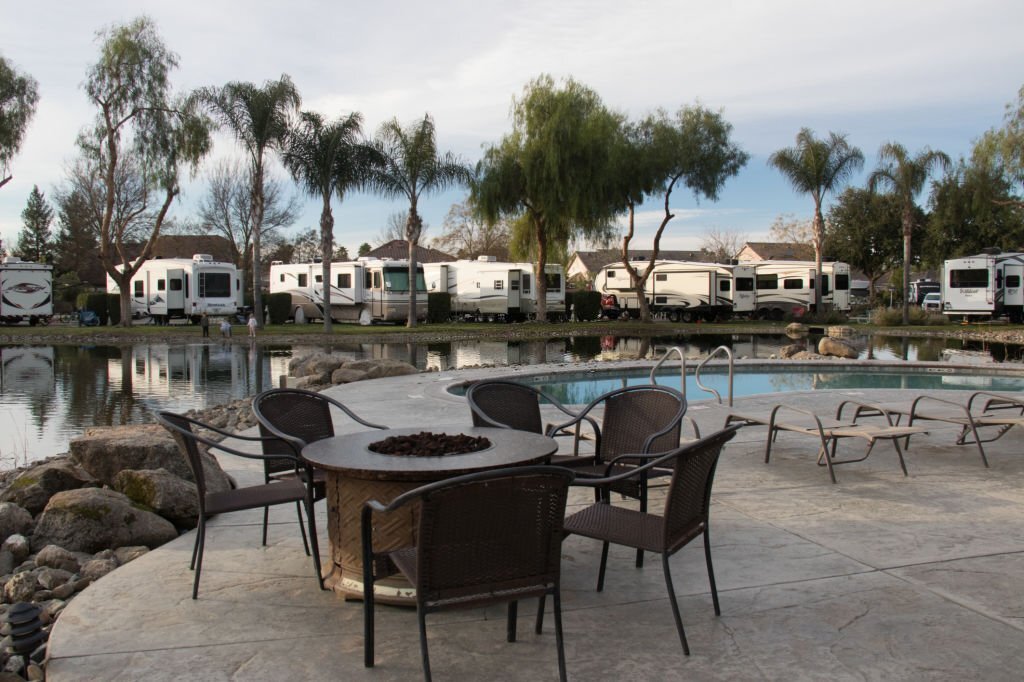Investing in RV parks can be a great way to make money in North America. In 2023, the RV industry contributed $140 billion to the US economy, supporting nearly 680,000 jobs. Moreover, the RV industry and the demand for RV parks are expected to keep growing rapidly for years to come.
But how does one tap into this booming market? Just as with any investment, diving into the world of RV parks requires meticulous planning, research, and strategy. You need to understand the nuances of the industry, recognize trends, and ensure that every decision aligns with a sustainable, profitable business model.
If you’re contemplating how to invest in RV parks and want to maximize your chances of success, this article will guide you through five critical considerations to ensure your investment not only thrives but also stands out in this competitive landscape.
1. Location
A quintessential factor dictating the success of an RV park is its location. At the heart of a thriving RV park lies its proximity to tourist hotspots—be it national parks, serene beaches, cultural festivals, or historic landmarks. Such attractions can be a magnet for potential guests, influencing your park’s occupancy rates.
However, it’s not just about being near a must-visit spot. Accessibility is paramount. RV enthusiasts, piloting sizable vehicles, will naturally gravitate towards parks that offer ease of access from main thoroughfares. A location too remote or difficult to navigate can deter potential visitors, regardless of the scenic beauty or attractions around.
Lastly, one mustn’t overlook local competition. A savvy investor will thoroughly research surrounding RV parks. By understanding their offerings, rates, and occupancy trends, you can pinpoint market niches or opportunities to differentiate your park.
A well-chosen location not only ensures consistent footfall but also lays a solid foundation for future growth and success.
2. Amenities and Facilities
In the RV park industry, amenities and facilities can significantly distinguish one park from another. Basic necessities like clean water, electricity, and sewage systems are non-negotiable and form the backbone of any successful RV park. But in today’s competitive market, these basics aren’t enough.
Value-added amenities, such as Wi-Fi access, recreational areas, dog runs, and camp stores, can elevate a guest’s experience from good to exceptional. Regular maintenance is also vital; well-kept restrooms, laundry areas, and communal spaces can significantly enhance a visitor’s stay.
Remember, while RV travelers value the freedom of the open road, they also seek the comforts and conveniences of modern living. Ensuring your RV park offers a blend of essential services and additional perks can make it a preferred choice for many.
3. Marketing
Marketing is another crucial factor to consider when investing in an RV park. Marketing is the process of promoting your RV park to potential and existing customers and creating a positive image and reputation for your business. Effective RV park marketing strategies can help you increase your occupancy rate, revenue, and customer loyalty.
One of the most important marketing strategies for an RV park is to have a good website. A good website can showcase your RV park’s features, amenities, attractions, rates, policies, and contact information. It can also provide online booking and payment options, customer reviews and testimonials, photos and videos, and social media links.
RoverPass Premium Website Builder was created to help RV parks reach a wider audience, improve their online visibility, and enhance their credibility. We have the skills and experience to optimize your website for more traffic, leads, and revenue. To see how we can transform your website into a stunning and powerful online presence, book a demo.
4. Financial Planning and Management
Financial planning and management are also crucial factors to consider when investing in an RV park. Initial costs, from land acquisition to infrastructure development, set the stage, but operational expenses will dictate day-to-day viability. Diversified revenue streams, such as rentals, amenities, and events, can enhance profitability.
Critical to this financial ecosystem is using a great booking platform. Such software not only streamlines bookings but also offers insights into occupancy trends, peak seasons, and customer preferences. This data can be invaluable for forecasting and budgeting.
Moreover, automated payment systems reduce errors and enhance customer experience. In essence, while keen financial acumen is indispensable, leveraging technology, especially reservation software, can simplify financial management, optimizing both profitability and guest satisfaction.
At RoverPass, we have designed a solution that helps campgrounds manage reservations seamlessly. With our campground reservation software, you can keep track of your bookings, accept payments, send messages to your guests, and optimize your site occupancy. It is a simple, cost-effective, and reliable software that works for any campground size and type.
To learn more about how RoverPass can improve your campground operations, you can request a demo.
5. Funding
For many entrepreneurs, securing the right funding is a pivotal step in turning the dream of owning an RV park into a reality. Initial investments for land acquisition, infrastructure setup, and facility development can be substantial, often requiring external financial support.
Several avenues are available for potential RV park owners:
- Traditional Bank Loans: These are a common source of funding, but they require a solid business plan, credit history, and often, collateral. Interest rates and terms can vary widely, making it essential to shop around for the best deal.
- Small Business Administration (SBA) Loans: The U.S. Small Business Administration offers loans specifically designed for small business ventures. These often come with favorable terms and rates but may have stringent criteria.
- Private Investors: For those with industry connections or compelling business pitches, private investors or venture capitalists might be a viable funding option. They typically seek equity or a share of the profits in return.
- Crowdfunding: Platforms like SeedInvest or GoFundMe can help raise capital from the public. While not traditional for large ventures like RV parks, a compelling story or unique selling proposition can attract micro-investors.
Regardless of the funding avenue chosen, it’s crucial to be transparent, realistic about projections, and diligent in research. Proper funding can set the stage for your RV park’s long-term viability and success.
These are exciting times to invest in the RV park industry, which is facing both opportunities and challenges. At RoverPass, we are committed to supporting RV park owners with a wide variety of different solutions to help them succeed. Stay tuned to our blog to learn more about the important issues affecting your RV park business.







